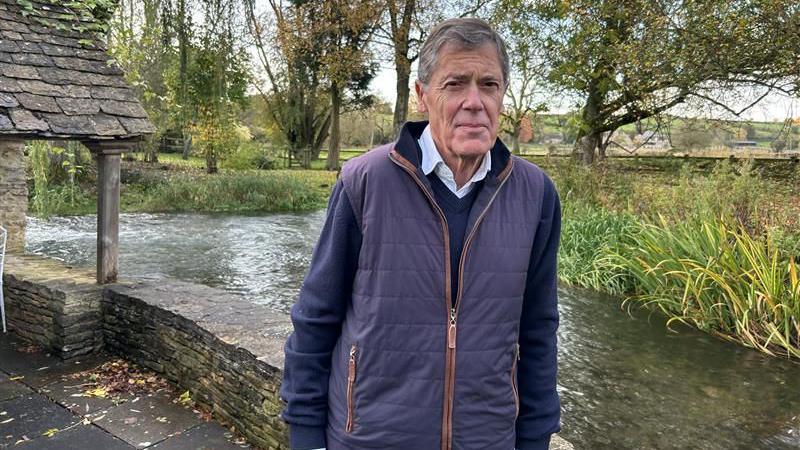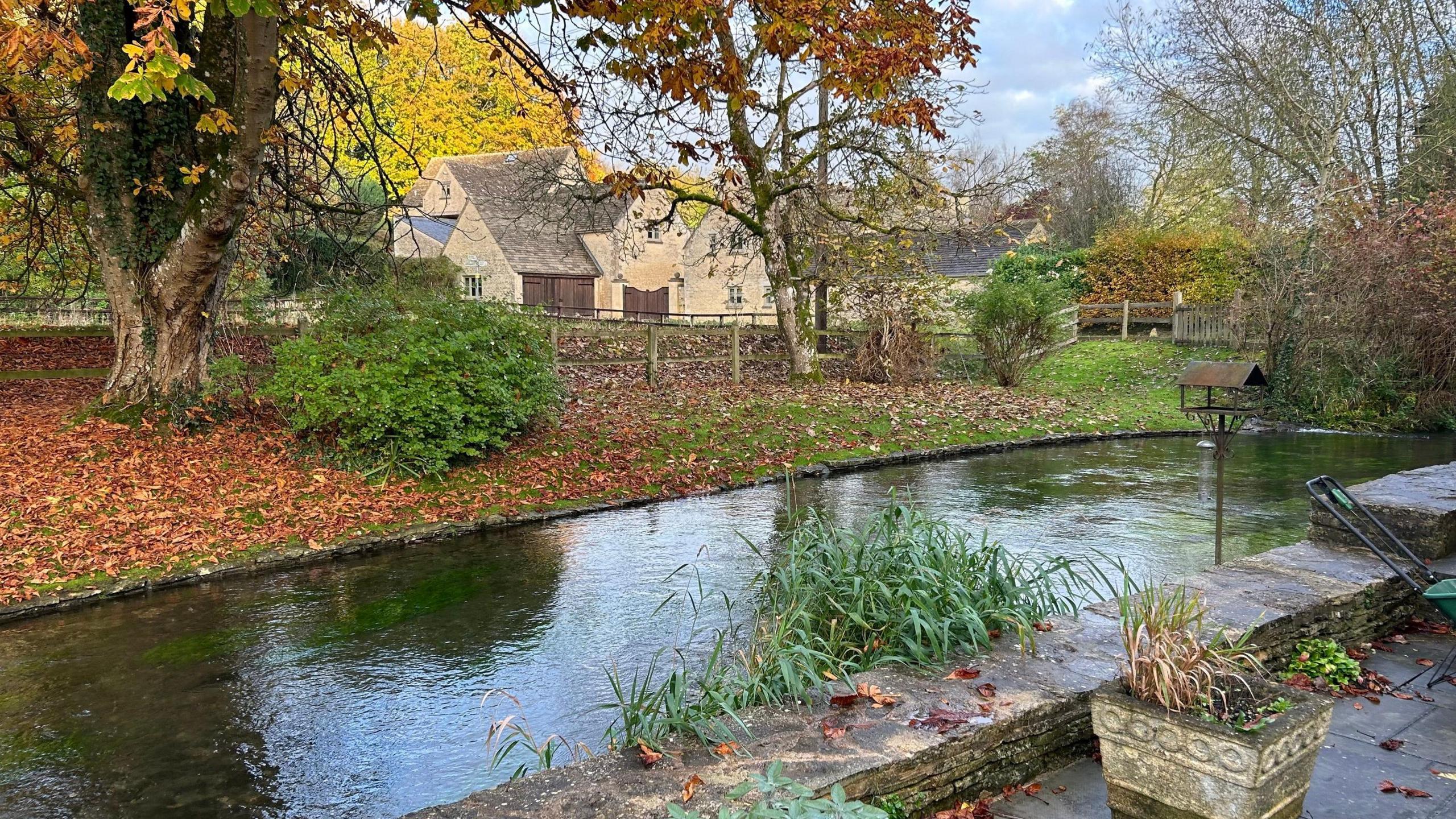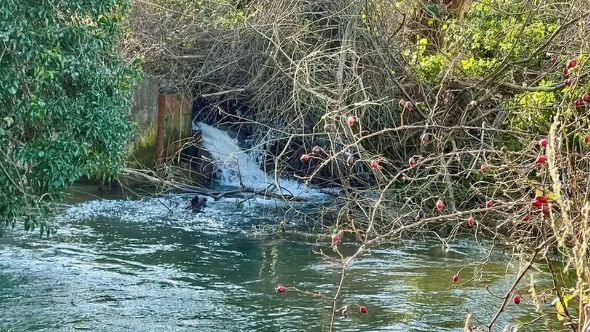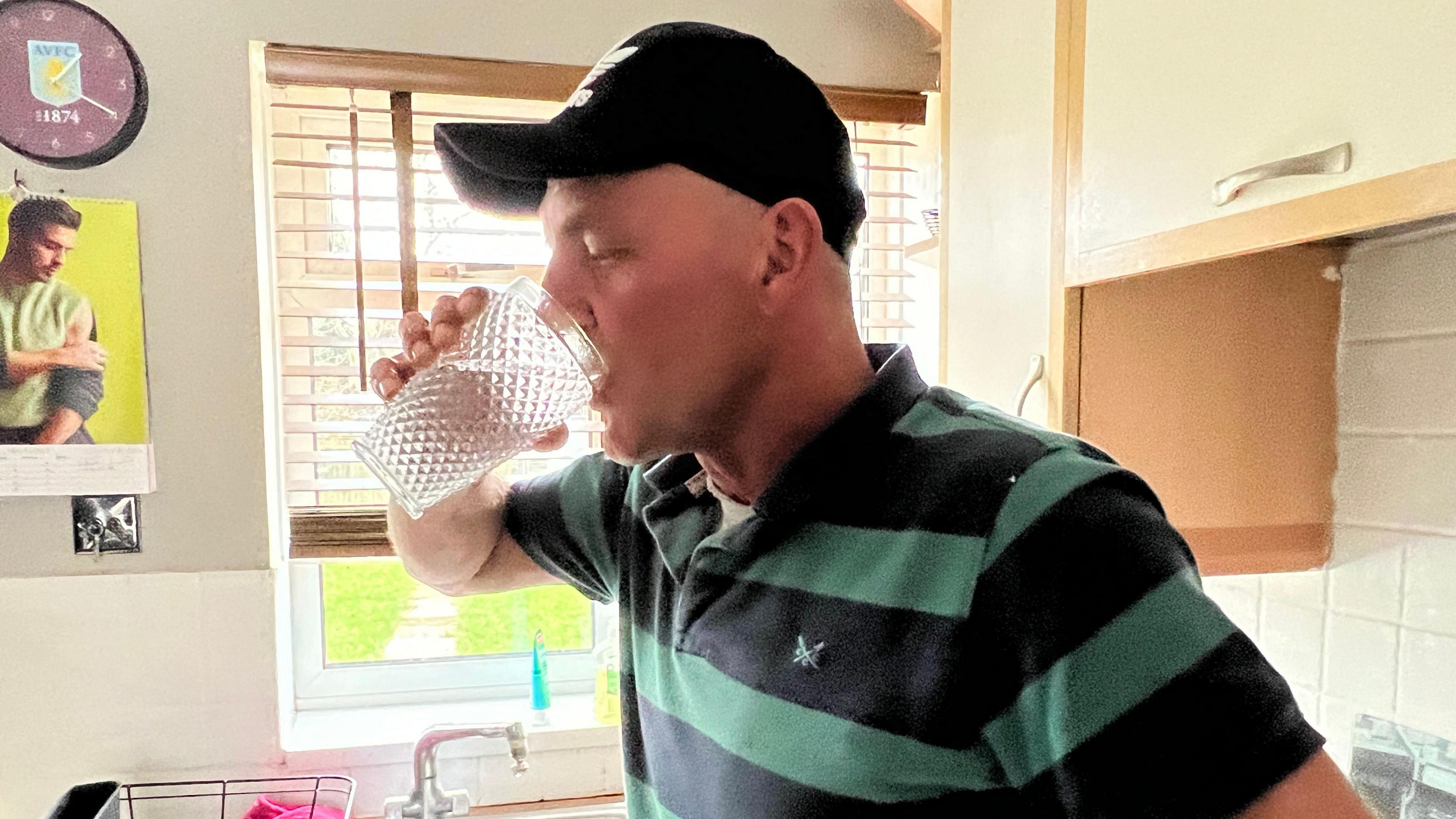Groups demand answers over river sewage leaks

Gilbert Chalk leads the Upper Coln Restoration Group, which raised money to hire a consultant to help them get answers about the state of the river
- Published
Community groups say they want rivers hit by sewage pollution restored and someone to take responsibility for the leaks.
Those living near the River Coln and River Avon in Gloucestershire have formed protest groups as raw, partly treated sewage has been pumped into the rivers.
Gilbert Chalk of the Upper Coln Restoration Group said the river has declined "drastically" over the last decade, with the changes visible.
Thames Water said it has asked for increased investment for 2025-2030 to keep up with aging infrastructure.
'Changed beyond recognition'
More than 2,000 hours of raw and partly treated sewage has been pumped into the River Coln already this year.
This means Andoversford is in the top 20 of Thames Water's 619 most polluted sewage treatment works.
"[in the]13-14 years I've been here, it's changed beyond all recognition," Mr Chalk said.
"You can tell being on the riverbanks, the overgrowth of the reed, the silting, the colour. There's something fundamentally wrong with the river."

Mr Chalk said the sewage works "just can't cope" with more rainwater and more housing along the stream
Environment Agency data shows waste was discharged in the River Avon for more than 5,000 on more than 228 days last year.
Geoff Sallis from Safe Avon wants to see penalties put in place and those dumping sewage to be held accountable.
"What we need to be doing is prosecuting," Dr Sallis, who lives in Tewkesbury, said.
"[Rivers] are a very important part of our lives. I just get offended that people, for profit, can use them as their own sewers."
A Thames Water spokesperson said: "We appreciate how much waterways are loved and enjoyed by everyone, and we are committed to minimising our impact on the environment, but we can’t do it alone.
"Farming, industry, livestock and more extreme weather all play a role in river health.
"We’ve put transparency at the heart of what we do, and we remain the only water company to publish a real-time data map on our website, which in its first year has been viewed over 350,000 times."
Get in touch
Tell us which stories we should cover in Gloucestershire
Follow BBC Gloucestershire on Facebook, external, X, external, and Instagram, external. Send your story ideas to us on email or via WhatsApp on 0800 313 4630.
- Published18 October 2024

- Published8 November 2024
